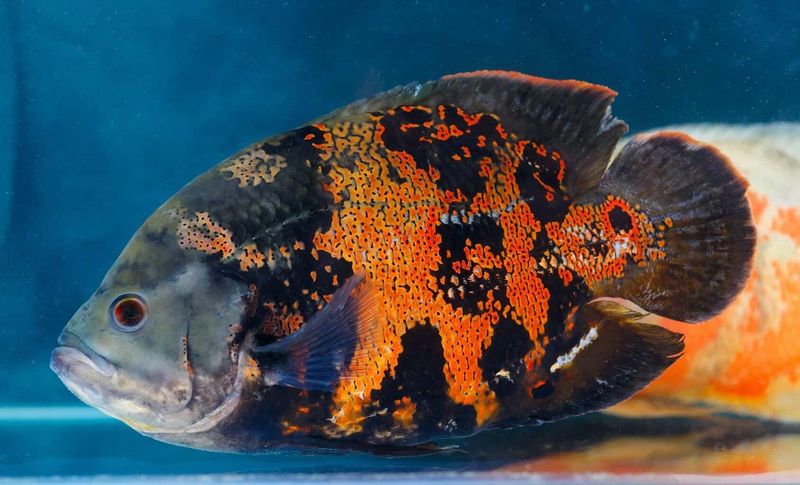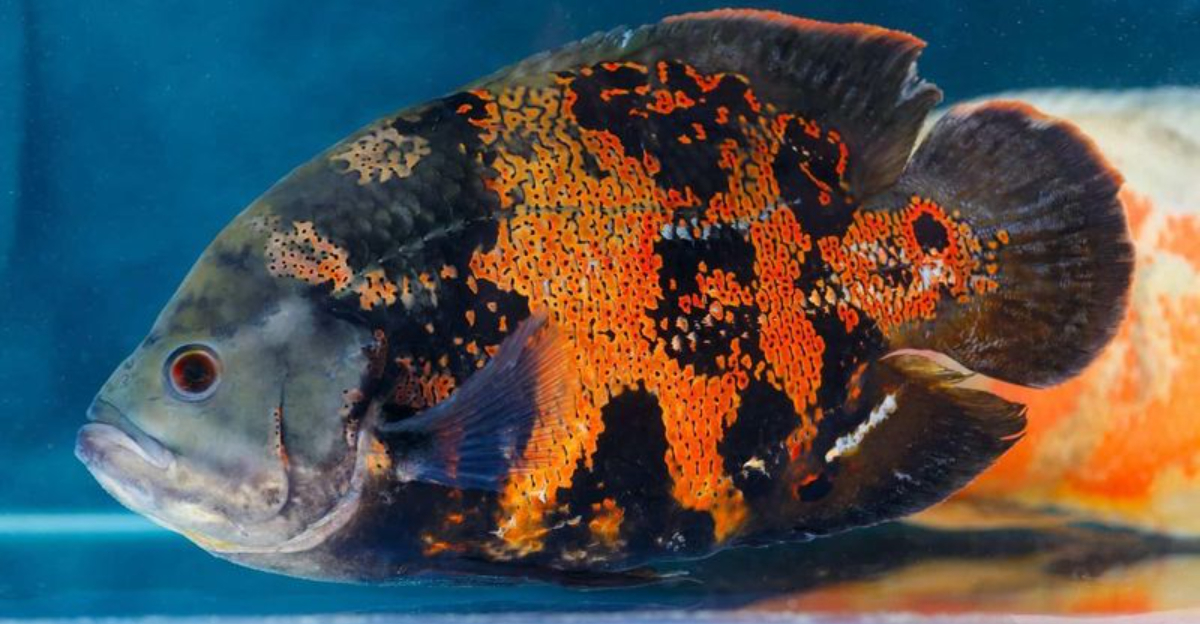Tropical fish in Michigan’s icy lakes? It sounds like a mistake—until you see one with your own eyes. Oscar fish, native to South America’s warm rivers, have somehow found their way into the Midwest.
Their bold colors and aggressive personalities make them impossible to miss—and raise even more questions. How did they get here?
The answer is a fascinating mix of human choices, ecological ripple effects, and nature’s uncanny ability to adapt.
1. Aquarium Owners’ Abandoned Pets

Buying an Oscar fish on a whim can come with surprises. A lot of Michigan pet owners pick up these flashy little cichlids when they’re small, not realizing they’ll grow to the size of a dinner plate in just a year.
When faced with aggressive behavior or maintenance challenges, some aquarists make the fateful decision to “free” their pets into local waterways. This misguided act of mercy—dumping unwanted aquarium fish—accounts for most Oscar sightings in Michigan waters.
A 2018 survey of Michigan anglers reported 12 separate Oscar fish catches, primarily near urban centers where aquarium ownership rates are highest. Each abandoned Oscar represents someone who didn’t research the species’ 10-15 year lifespan before bringing one home.
2. Surprising Survival Abilities

Against all odds, these tropical fish manage to survive temporarily in Michigan’s waters thanks to their surprising adaptability. Oscar fish, naturally built for the unpredictable conditions of the Amazon basin, can handle a wider range of temperatures than most people expect—especially if they have time to adjust. In summer, shallow Michigan lakes can warm to over 70°F—just warm enough for Oscars to hang on.
These clever cichlids often find warmer pockets of water near power plant outflows or stormwater drains. I saw it for myself while fishing at Lake St. Clair, when my son reeled in a healthy 8-inch Oscar near a storm drain outlet. Most don’t make it through the winter, but their ability to thrive during warmer months shows off survival instincts that would impress even the wildlife experts.
3. Ecological Consequences

Michigan’s native fish face unexpected competition when tropical Oscars enter their habitat. These South American invaders feed on small crustaceans, insects, and even smaller fish—directly competing with indigenous species for limited food resources.
Wildlife officials worry about disease transmission too. Aquarium-raised Oscars potentially carry parasites and bacteria foreign to Michigan’s ecosystems, threatening to spread illness through already-stressed fish populations.
The Michigan DNR now includes Oscar fish in their invasive species awareness campaigns. While unable to establish permanent breeding populations due to cold winters, their temporary presence still disrupts natural balance. Each released Oscar represents a small but meaningful ecological disruption that compounds with other human-caused environmental challenges.
